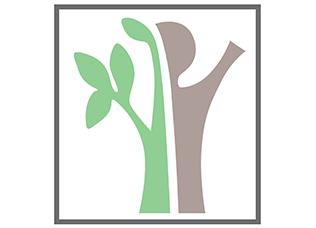C1 Construction & Operation of EGCs:
Action C1 entails all necessary procedures and actions for the construction, and operation of three Enhanced Green Centres (EGCs) – one in the Municipality of Thessaloniki and two in the Municipality of Athens. The ultimate goal of this action is to evolve the Green Centres to places, that not are not only dedicated to the separate collection of waste, but also to the re-direction of items (such as furniture, waste electrical and electronic equipment, clothes and textiles, books, toys etc.) to reuse or preparing for reuse. These EGCs are anticipated to contribute to resource efficiency, reduction of the carbon footprint, as well as to promote the social dimension of waste collection points (e.g. preparing for reuse leads to jobs creation). Especially for the Athens’ EGCs, they will be also used as collection points for the HHW (action C.3).
C2 Application of EU Circular Economy Package in selected Insular & Mountainous areas:
Throughout the implementation of this action, the operation of an Integrated Waste Management system in four insular and one mountainous areas will start (i.e. island of Alonissos, islands of Paros & Antiparos, island of Thira, island of Tinos, Municipality of Nafpaktia – Action C2),. Based on the outputs of Action A2, this action will proceed in three consecutive stages: installation of the necessary infrastructures for collection, operation licensing (if needed) of the infrastructures and operation of the integrated waste management system in the demonstration areas as well as fine-tuning where needed in order to enhance its performance.
C3 Full scale implementation of hazardous household waste (HHW) collection networks and management:
Although HHW has a small share of the generated municipal solid waste, its separate collection is imperative for environmental and human health safety reasons. More specifically, the action aims to the development of a full scale application of HHW management (collection, transportation, sorting and transportation for further management) in 2 pilot areas, which are the Western Macedonia Region and the Municipality of Athens. The prerequisite activities (i.e. studies, data identification) for its smooth implementation will be completed within the implementation of Action A2.4. The action also includes public awareness regarding the types, collection and management of HHW.
C4 Food waste prevention:
This action aims to set-up an efficient system to monitor and prevent food waste generation along the entire food supply chain from production to consumption (post-harvest production, food processing/industry, wholesale sector, retailers, households, hospitality, catering), in compliance with the direction of the National Circular Economy Strategy (NCES) and the Directive (EU) 2018/851. The Action will entail the development of a methodology to measure the amount of food waste, the estimation of a baseline for food waste generation in Greece, as well as the annual assessment of food waste generation in Greece with ultimate goal to develop, monitor and assess food waste prevention policies, actions and practices. Furthermore, it includes the development and operation of a platform that will serve as a catalyst for monitoring and management of food waste prevention. In parallel, demonstration actions for the management of surplus food and food waste prevention, will be organized and set in operation in the Municipalities of Athens and Thessaloniki.
C5 Development of local / regional alliances for agro-food waste management:
The scope of this action is to implement agro-food waste management options based on the methodology that will be developed in Action A3.1 and the development of local and/or regional alliances. This action is grounded on the “system-thinking” approach, an important aspect of Circular Economy business model.
C6 Application of economic instruments in support of Circular Economy (CE):
With ultimate aim to support and disseminate the circular economy concept, Action C6 will set the basis for the development of CE technical specifications for financial tools, as well as the integration of CE indicators and technical specifications for waste management. Also, through this action, standards for secondary materials will be developed/ updated upon CE. Finally, a PAYT system will be implemented in the Municipality of Vari-Voula-Vouliagmeni.
C7 Capacity Building Actions:
This action focuses on the development of a high quality multi-purpose delivery mechanism of CE that will facilitate the development of synergies with other EU policies and integrate the objectives of the project into them. Action C7 is anticipated to “transfer” knowledge and skills, develop and exploit communication channels, and investigate further funding, which will reach stakeholders during and after the end of the project. Thus, through this action, the following activities are about to be developed: a) context specific seminars, customized to all stakeholders’ needs, b) a food waste prevention forum, with ultimate aim to establish a National Voluntary Agreement, c) distance training for stakeholders, and d) a national CE repository.


